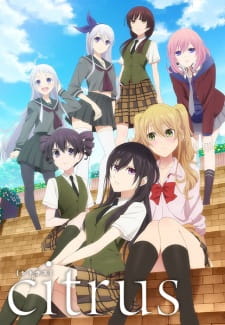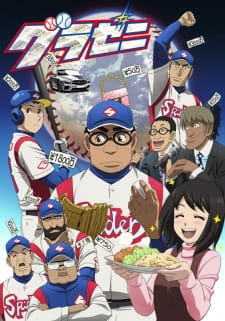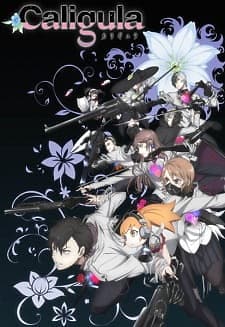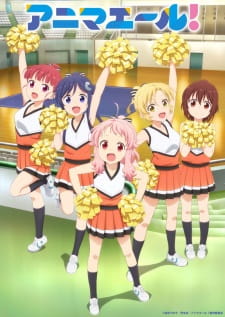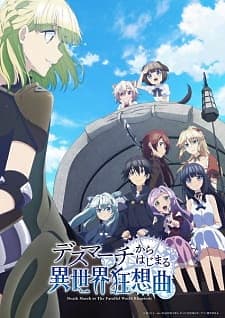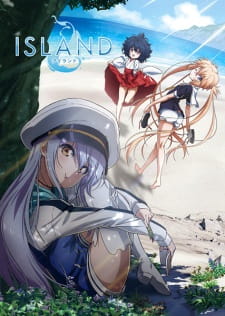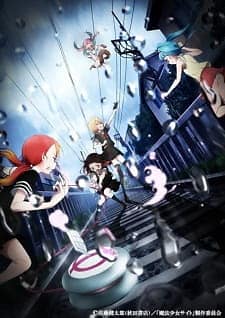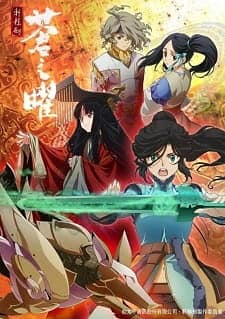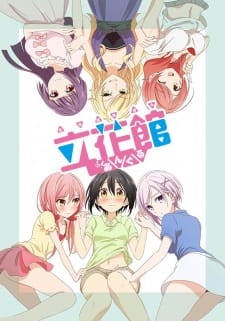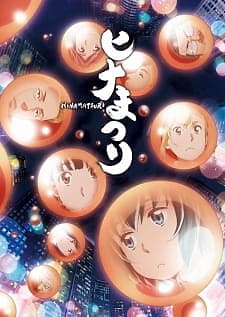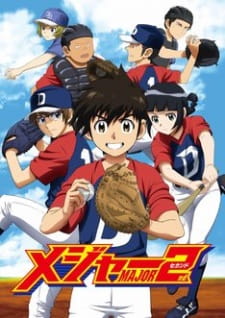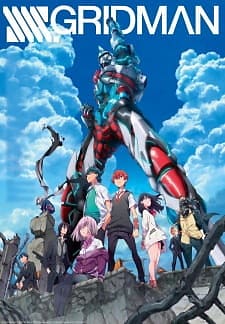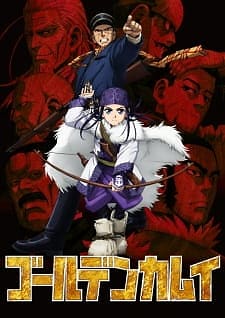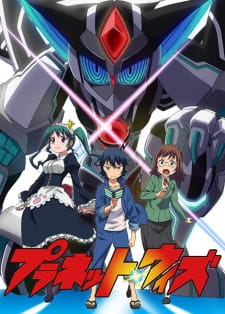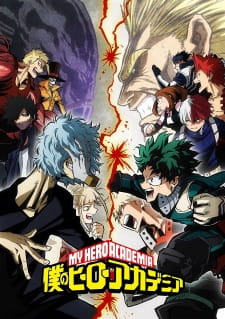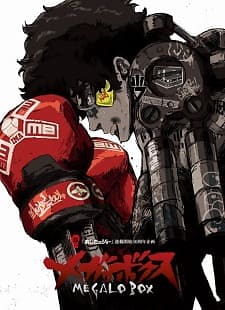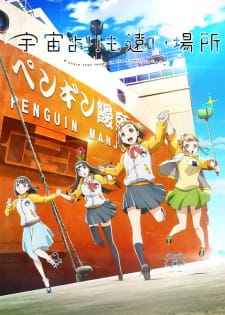The year is almost over. We went over the best of the best, but now it's time for the worst of the worst. What follows are going to be the ten worst anime of 2018. The rules are the same as they were for the best of list: Only tv anime that I have watched are eligible. That means that shows I avoided watching like Sword Art Online Aliciziation and The Master of Ragnarok and Blesser of Einherjar will not be appearing on the list, no matter how bad I assumed they are based on looking at a few trailers. Unlike the best of list, however, a lot of these shows are shows that I have not watched all the way through, so I will acknowledge that it is entirely possible that I just watched the bad part and that the episodes I didn't watch make it all worthwhile, though I honestly doubt that.
Also, just like last time, I have a few anime that I want to call out as being not that great but weren't awful enough to make the worst of list. So, this year's dishonorable mentions are:
- Jingai-san no Yome
- Kokkoku
- Magical Girl Ore
- Hanebado
- Tsurune: Kazemai Kyudo Club
- Radiant
- Comic Girls
- Between the Sky and the Sea
Well, enough stalling. Time to relive my worst anime memories of the year for your entertainment! Whee!
Number Ten: Goblin Slayer
Goblin Slayer is a fantasy action/adventure story produced by Studio White Fox. In the story, after her first adventure went horribly wrong, a young Priestess teams up with the mysterious Goblin Slayer, and the two of them form a party and go on goblin slaying adventures together.
This is probably going to be a controversial pick, and I really wanted this show to be good. In fact, if you read my coverage of the first 5 episodes on the Weekly Roundup, you'd practically see me going through the 5 stages of grief as we go along. The first episode had me in denial, where I blissfully ignored the awkward animation and clumsy battle choreography in favor of the potential for a good dark fantasy story and defending a rape scene that I still will say was not in poor taste, but your mileage may vary. Then in the second episode, I got angry that Goblin Slayer's backstory was so cookie cutter and generic, and I almost rage quit the anime right there. But then I skipped over depression and went into bargaining when new characters were introduced in episode 3, and the dynamic that they brought to the party gave me hope that something could be salvaged from the wreckage that used to be the chance for dark fantasy. But between episode 4 turning the goblins into a bunch of chumps and episode 5 being one of the most boring things I had ever seen, I experienced acceptance that Goblin Slayer is nothing more than a story with potential being turned into a mediocre mess that thinks that referencing Dungeons and Dragons is a valid substitute for developing its story and characters.
Number Nine: Citrus
Citrus is a yuri romantic drama produced by Studio Passione. Our two would-be lovers are Yuzu, a new transfer student to an elite all-girls school, and Mei, the student council president who is also Yuzu's new step sister. And that is how you turn a two paragraph plot synopsis on MyAnimeList into only two sentences.
Citrus is bad, and I'll get into explaining why in a bit, but it's also a bit of a guilty pleasure for me, which is why I was able to watch it all the way to the end. The entire show felt like a train wreck, where I felt compelled to keep watching and try to figure out what went wrong. Yuzu especially is a really good character whose reaction to realizing that she is a lesbian was just to shrug her shoulders and move on, and the fact that as soon as she realizes how emotionally damaged Mei is that she backs off on her romantic advances and just tries to be a good sister and friend to her was not what I expected and almost made me take this off the list altogether.
But I know exactly where this show went wrong, and the flaws are so numerous that I cannot in good conscience ignore them. There isn't exactly a high standard for animation in a show that doesn't have a lot of action going on, and yet Citrus is extremely ugly in motion and avoids animation whenever possible, making it quite boring to look at if you don't like ogling drawings of high school girls. And Passione knows that the girls are the main highlight of the show, so they crammed in as many scenes of girls kissing, groping each other, or seeing each other naked as they could, consent be damned. And this isn't even a comedy anime, where the right context could make that sort of thing funny in its awkwardness. But I was willing to ignore all of that if the story was good. Too bad the different story arcs were basically the same basic story being told over and over, with one of the girls misunderstanding what the other wanted and facing interference from a potential romantic rival. This basic story repeats itself FOUR TIMES in the 12 episode run. That's just inexcusable.
Number Eight: Gurazeni: Money Pitch
Gurazeni is a seinen sports comedy/slice of life produced by Studio Deen. It follows the life of Honda, a professional relief pitcher who is obsessed with how much money both he and his fellow players are earning, reasoning that his career as a professional player is not going to last forever and his prospects for employment after that has run its course are limited, so he has to earn as much money as possible now.
I think it has been well established that I LOVE spots anime. I wouldn't say that it's my favorite genre of anime, not while shows like One Piece and Fullmetal Alchemist exist, but it does hold a special place in my heart and I tend to give shows more of a pass when they feature exciting sports matches (which is the main reason why Hanebado escaped the worst of list). But even I can't ignore the fact that Gurazeni has nothing going for it. I've seen PS1 games with smoother animation than the extreme amount of CG on display here, and after two episodes of boring, unfunny sketches without a single character endearing themselves to me, I knew that there was nothing in the writing that would make up for the atrocious visuals. I will freely admit that the idea of a workplace comedy focusing on a professional sports team isn't a bad idea, but this just does nothing for me.
Number Seven: Caligula
Caligula is an action sci-fi anime produced by Studio Satelight. The premise itself can be considered a spoiler, but since MyAnimeList didn't hesitate to spoil me and since the show turned out to be terrible, I don't care. The characters are a bunch of high school students who have been lured into a virtual world created by a sentient AI idol named Mu in a misguided attempt to spare them from the harshness of the outside world. Upon learning the truth, the students form a resistance group and try to escape to the real world and learn of a group of villains manipulating Mu behind the scenes.
I think that, aside from Goblin Slayer, there isn't an anime on this list that I wanted to be good more than Caligula. Between the slick character designs, competent animation, a premise that can be boiled down to "the Matrix, but Agent Smith is a Vocaloid," and how interesting Mu is as a character, there was some real potential here. But our "heroes" are the exact kind of self-absorbed idiots I hate seeing in fiction (yes, I understand that character flaws are important and that selfish characters can tell great stories, but I don't have time to write a dissertation on the kind of protagonists I prefer today), with no saving grace or interesting depth to them, and as soon as they figure out that they are in a virtual world (which takes 4 whole episodes!), the plot takes a weird left turn as they basically go on vacation to Sea World and judge a beauty contest. And when you take that and add in a character's fat-shaming rant being framed as a turning point for her where she decides to step off the sidelines and join the good fight, you get a 3/10 on my MAL profile.
Number Six: Anima Yell
Anima Yell is a sports comedy/slice of life series produced by Studio Doga Kobo. It follows Kohane, a high school freshman who loves to help others, as she is inspired to start a cheer leading club with her friends, as it is "a sport where you support others".
I already talked about Anima Yell in my unpopular anime opinions video, where I used it as a springboard to launch into a rant about modern anime using cute girls doing cute things as a substitute for actually developing story and characters worth remembering for more than five minutes after you finish watching it, and I really don't want to repeat myself too much when complaining about a show that I only watched one episode for. So all I'm going to say is, watch this
opening. Look at how many still images there are. Look at how stiff the big cheer leading dance is. The opening theme is where you need to sell new viewers on your show and get returning viewers excited for a new episode. And they didn't put any effort into it whatsoever. They don't need to. After all, the show has a cast of cute girls, so it's guaranteed a 7/10 on MAL and figurine sales, so what more do you need? Honestly, the only reason this show isn't higher is that I didn't care enough to keep watching to find more to complain about and it doesn't go out of its way to be anything more than safe and average.
Number Five: Death March to the Parallel World Rhapsody
Death March to the Stupidly Long Anime Title is a fantasy isekai harem anime produced by Studio Silver Link and Studio Connect. It focuses on a game designer named Satou who finds himself trapped in the world of his upcoming game, where in order to survive, he takes advantage of a programming bug that has yet to be fixed and instantly reaches max level, whereupon he decides to just chill in the fantasy world and take a vacation from his extremely stressful job.
Do I really need to explain why this show sucks? It's a fantasy isekai anime about an overpowered main character getting sucked into a video game world, where he easily succeeds at everything he does and has an army of women throwing themselves at him. Four of these women are underage (ew) and six of them (including all the underage ones) are technically his slaves (double ew). While I would be willing to praise the show for having Satou explicitly reject all of these girls' advances and choosing to pursue consensual romances with adult women that are on equal footing with him, the fact remains that he STILL KEEPS THEM AS HIS SLAVES! I don't care about his justification that he views himself as their guardian/father figure, that's still slavery! Our hero, ladies and gentlemen!
And even if you were somehow willing to forgive slavery, the show is just boring. I understand that this is more a travelogue than an action series, but the locations they visit are bland, so there is no fun at seeing the world that Satou has found himself in. One Piece is another show I would argue is more travelogue than anything else, so let me ask you, what sounds more interesting? An island where the architecture is made of candy and inanimate objects come to life and seems to be a Disney-style paradise where all races live in harmony, only to secretly be ruled by a bratty, child-like tyrant who takes portions of the citizens' life span as taxation and refuses to allow anyone to leave, or a fantasy town with a blacksmith and an adventurer's guild? I rest my case.
Number Four: Island
We all knew this would make the list. Island being bad has been a running joke on this blog since the very first post back in July, and back then, I was honestly ready to declare it my worst anime of the year. For the sake of proper formatting and extending the word count though, Island is a sci-fi mystery anime produced by Studio feel. It tells the story of Suzuka, an amnesiac who only remembers two things: he's from the future and there is somebody he needs to kill. Then some little girls start walking around half naked and any sense of potential evaporates in an instant.
For a brief moment, I had thought that I was being too hard on Island. After all, with 66,000+ members on MAL and an average score of 6.5/10, maybe there's something here I was missing. But then I rewatched the first episode and I remembered why I hate Island. The very first line is a girl who looks to be no older than 11 saying "I might break." in a way that sounds like it came out of a bad hentai. The whole time I watched this, I felt like I needed to be put on some kind of list. And it's not like the story can save the disgusting misuse of fanservice. Suzuka has no personality whatsoever, making him a terrible protagonist, and with every other character trying to be mysterious and sinister, nobody stands out as their own unique personality. And while the art isn't necessarily bad, it's very uninspired to the point where I felt my eyes start to droop during the halfway point of rewatching the first episode. How did you go from making Hinamatsuri to this train wreck, Studio feel.?
Number Three: Magical Girl Site
Magical Girl Site is a psychological horror take on the magical girl genre produced by production doA (that's how their name is officially written on MAL). It tells the story of Asagiri, the girl with the worst life in the world, and how she finds a mysterious website where a strange entity takes pity on her and gives her magical powers.
Remember Madoka Magica? How the normally bright and cheerful magical girl genre was turned on its head and portrayed the girls and child soldiers who were doomed to a tragic end thanks to their own hubris and belief that they were heroes in a world where selfless heroism cannot exist? Well, Magical Girl Site certainly hopes you don't. If you did, you'd realize that there is more to deconstructing a genre and taking it in a new direction than going all out on being ridiculously edgy and dark. The characters in Madoka had positive and negative aspects to their lives, and the show didn't hesitate to show that there was still a reason for hope and heroism even if things aren't as simple as we might wish they are. Meanwhile, in just the first episode alone, Asagiri has her shoes stuffed with razor blades and thumbtacks, finds glue on her seat at school, is abused by her brother, learns that her cat is murdered at the same time as someone is trying to rape her, and nearly gets her throat sliced open. Hell, in the very first scene, she contemplates throwing herself in front of a train! If she doesn't want to be here, why should I? It stops being dramatic and just starts being silly, and not in the tongue in cheek way that Killing Bites is silly. And why the hell are you in this, Ryusei Nakao? You've got Dragon Ball Super going for you, surely you don't need to stoop this low just to pay the bills!
If you want a better explanation as to why Magical Girl Site is a bad anime, this
video by Explanation Point (who actually enjoys the show on an ironic level) explains it in much better detail than I ever could. Also, Explanation Point is a great anime YouTuber and you should watch all of his videos.
Number Two: Xuan Yuan Sword Luminary
Ready for the worst anime of the first season of the Weekly Roundup? Xuan Yuan Sword Luminary is a fantasy action would be epic produced by Studio Deen. It's an ambitious little story, telling the story of two sisters struggling against an evil empire where their childhood friend has started working for them as an inventor of deadly constructs. Then there are some rebel groups and imperial politics and all that other stuff that screams: "I want to be Legend of the Galactic Heroes!"
Everything about this show is awful. The background art is muddy and looks worse than a knockoff attempt to pirate Ocarina of Time and run it on an Atari 2600. The glow effect around the magic sword that the main character carries literally makes me nauseous. The voice acting is so amateurish that characters react to a massacre of innocent civilians the way you would react to a light drizzle outside, and the lip syncing animations don't even line up with the original dialogue that was written for that scene! One of my biggest rules for good writing is that they way characters act should line up with their own internal logic and that any hypocrisies should be part of their story instead of existing for the sake of the story. The characters here betray their own internal logic so many times that I could make a drinking game out of it and die in one episode, and they are so boring that I can't even remember their names even when I just heard them introduce themselves. And the worst thing about this show is that it wants to be good. The story is ambitious as hell, with all sorts of factionalism and friends pitted against each other and politics and all my favorite story ideas, but the execution is so incompetent that it's a miracle that something came out this year that I liked even less.
Number One: Tachibanakan Triangle
This show might not be nearly as grossly incompetent as Xuan Yuan Sword Luminary, but I find it infinitely more offensive. Tachibanakan Triangle is a yuri ecchi harem short-form anime produced by Studio Lings and Creators in Pack. It follows Hanabi, who moves into an all female dorm as her first experience living away from home as she goes to high school. Almost all the girls at this dorm have a thing for Hanabi, but because episodes are only 3 minutes long, nothing really comes of it.
Tachibanakan Triangle is almost a culmination of all of my complaints about anime in one package. Cute girls getting naked are used as a substitute for story and character development. Animation is virtually nonexistent as characters just stand around and talk to each other as fast as possible to try to make a 3 minute run time work. The show takes no risks and tells the most basic stories possible about a group of school friends living together. Everything they try is something you've seen before, and there's always another anime that does this or that story idea much better. When the only original idea is having an episode framed around a high school girl wetting her pants, you can't really sink much lower. And, above all else, it's boring, often ending an episode right when a new story idea is established, and then either forgetting about it or failing to make the new idea interesting in any meaningful way.
Every other anime I watched this year had some sort of redeeming quality. Goblin Slayer had the campfire scene. Citrus had a likable protagonist. Gurazeni had a unique spin on traditional sports anime narratives. Caligula had a slick art style and an interesting premise. Island had the seeds of a decent mystery. Magical Girl Site had a fun opening and some good voice actors. Sword Luminary had a lot of ambition behind its story. Hell, even Anima Yell and Death March had a handful of scenes that made me chuckle. What does Tachibanakan Triangle have? Yeah, the girls are pretty to look at and more curvaceous than most anime girls, but even still, they don't hold a candle to the sex appeal behind characters in Citrus, Lupin III, Overlord, One Piece, Food Wars, or Gridman, and all of those also aired this year. Besides, why would I care about anime girls being sexy when hentai still exists? So, take away the pretty girls, and Tachibanakan Triangle has nothing. No story, no appeal, no ambition, and no reason to justify its existence. It goes beyond being the worst anime I watched this year. It's the worst anime I have ever watched period, and I feel justified in giving it my very first 1/10 on MAL. So, of course, it has an average score of 5.6/10 on the site.
 |
| Wait, people liked this show? |
I kid, I kid. I don't honestly believe that there is such a thing as an objectively horrible show. I mean, I still hate Tachibanakan Triangle and I still stand by that 1/10 score, but if that's your thing, then by all means, continue watching it and shows like it to your heart's content. Anime, and entertainment in general, is supposed to be something that makes you happy. So, if this makes you happy, then I genuinely am happy for you. I just wish that I didn't watch it, because if made me very unhappy.
And with that, we officially wrap up 2018. The last Weekly Roundup for the Fall season will be out on Sunday the 30th, and then we ring in the new year. Which I know will be good because Promised Neverland is coming.
 |
| -incoherent excited squeals- |


